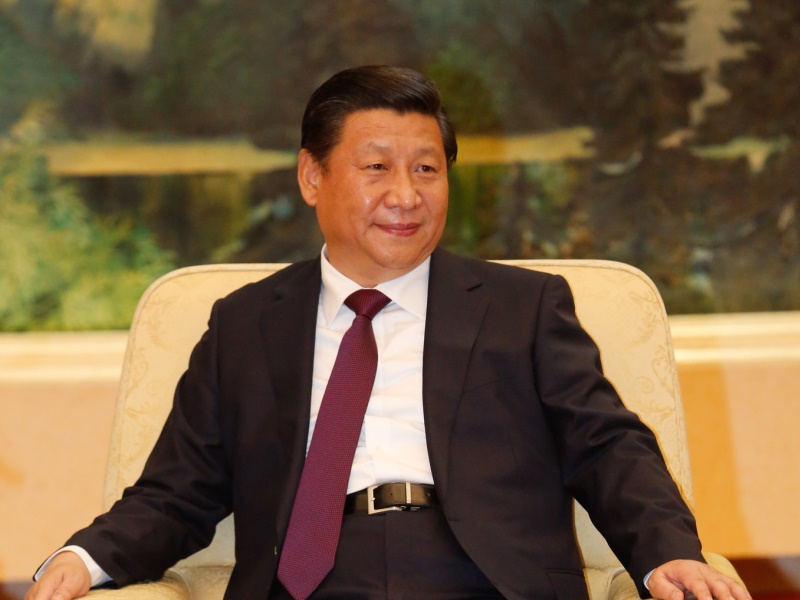-
Tips for becoming a good boxer - November 6, 2020
-
7 expert tips for making your hens night a memorable one - November 6, 2020
-
5 reasons to host your Christmas party on a cruise boat - November 6, 2020
-
What to do when you’re charged with a crime - November 6, 2020
-
Should you get one or multiple dogs? Here’s all you need to know - November 3, 2020
-
A Guide: How to Build Your Very Own Magic Mirror - February 14, 2019
-
Our Top Inspirational Baseball Stars - November 24, 2018
-
Five Tech Tools That Will Help You Turn Your Blog into a Business - November 24, 2018
-
How to Indulge on Vacation without Expanding Your Waist - November 9, 2018
-
5 Strategies for Businesses to Appeal to Today’s Increasingly Mobile-Crazed Customers - November 9, 2018
Chinese President Xi Jinping calls for ‘cyber sovereignty’
Beijing has also sought the support from multinational Internet companies for cyber sovereignty. On Monday, Pu Zhiqiang, a rights lawyer who defended dissidents, was tried on charges of “provoking trouble” and “inciting ethic hatred” in seven social-media postings critical of party policies toward the Uighur minority in the western Xinjiang region.
Advertisement
“Cyberspace is similar to the real world in that both freedom and order are necessary”.
Competition between large Internet companies is a good thing, because it produces innovation.
Xi also urged countries to respect each other’s “path of internet development and management”. “No country should pursue cyber hegemony, interfere in other countries’ internal affairs or engage in, connive at or support cyber activities that undermine other countries’ national security”, Xi said at the government-organised conference in Wuzhen of east China’s Zhejiang Province.
As Xinhua put it, paraphrasing Xi’s remarks, “each country is unique and its Internet governance models will reflect this”. He said that China manages the Internet, as does every country’s government.
“This is the place with the best Internet connection in China”, Kaspersky Lab chief executive Eugene Kaspersky said during a conference forum.
“International cyberspace governance should promote a multilateral approach”, he said.
But critics have said China uses the notion of national security as a pretence to crack down on political dissent.
“Under the guise of sovereignty and security, the Chinese authorities are trying to rewrite the rules of the Internet so censorship and surveillance become the norm everywhere”. “We warmly welcome enterprises and entrepreneurs to invest in China, as long as they are in accordance with Chinese laws”, Xi emphasized in his speech. Cyberspace, he said, should not be turned into a battleground for nations to wrestle one another, and still less a hotbed for crimes. Many other countries were represented by locally based diplomats.
In September, US president Barack Obama and Xi established “a high-level joint dialogue mechanism on fighting cybercrime and related issues”.
The second World Internet Conference opened in Wuzhen, China on December 16.
In contrast, China’s BAT companies-the nickname for Baidu, Alibaba and Tencent, the country’s Big 3 Internet businesses-aim to attract smaller companies and everyday residents with services ranging from online bill pay to sales of insurance policies and educational loans.
As of July 2015, the number of Internet users had reached 668 million, the most in the world, according to official figures.
Instead of bringing collapse as some predicted, the Internet in China is becoming more commercially robust and innovative despite regulation and oversight.
Advertisement
Pu went on trial in Beijing on Monday in what campaigners described as a landmark freedom of speech case that will help define what can and cannot be said on the Chinese internet in future.




























